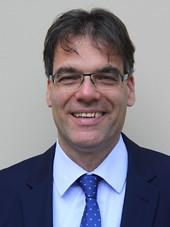活动情况介绍
The opening board was composed of the chief of the European Union Delegation in Brazil, Ambassador Ana Paula Zacarias, the president of the Brazilian Center for International Rela-tions (CEBRI), Ambassador Luiz Augusto de Castro Neves and the representative of the Konrad Adenauer Foundation in Brazil, Mr. Felix Dane.
The first to speak, Ambassador Ana Paula Zacarias stated that the European Union Dele-gation in Brazil has, for the past years, been a partner in the International Security Confer-ence of the Fort of Copacabana, as it is one of the most important meetings in South America to discuss security issues with Europe. Security and responsibility, the ambassador stressed, are important topics which have been in the spotlight for a few years and that become more present when we consider the interde-pendent world in which threats are global and providing access to a dignified life is a chal-lenge to every country. The European Union (EU) has invested efforts in making the world better, especially after understanding the need to change in the bloc’s operating strategy. Pre-viously, it acted only on its immediate neighbors, but it has since adapted to the new reality and started defending the principles of democracy and respect for human rights on a global scale.
The European Ambassador affirmed that the bloc has advantages in the attempts to imple-ment its projects. These advantages come from the multiple tools they use (military, civil, financial, commercial) and can influence reality in a way that NATO and others cannot, due to their limited instruments. She also said that the bloc’s diplomatic structure took a long time to be created, but it is currently functioning and capable of coordinating activities with other countries (even members of the EU), mainly as a way to avoid crises, such as the recent actions for Iran and Syria.
Mrs. Zacarias stated that the European Union has a long road ahead in its consolidation process, mainly regarding the strengthening of the fiscal, economic and political aspects, which are also ways of improving security. She highlighted the importance of partners for the external actions of the EU, and that Brazil is one of those partners since it shares with Europe several objectives, interests and values which are fundamental to the discussions on security and foreign policy. The cooperation between the two reinforces mutual trust and enables it to extend to other areas. After all, as the Ambassador said, there are still many pos-sibilities of cooperation.
Ambassador Luiz Augusto de Castro Neves pointed out that a fruitful cooperation for both regions of the planet is sought. He notices that, since the end of the Cold War, the world is more complex in its issues and politics, but that the diplomatic bureaucracies still function on the parameters of the Cold War era. It is understood that these dynamics lasted many years, but it is astonishing that a world of co-operation and peace hasn’t yet emerged, even after significant changes in the international political scenario, such as the rising of China. The new challenges that arise are enormous and have to be tackled multilaterally with global answers, in order to reduce asymmetry of power and rights, and thus carry the world to a fairer reality. The Ambassador ended his speech affirming that the lecturers can con-tribute to the dialogue and improve coopera-tion, at least regarding security issues.
The representative of the Konrad Adenauer Foundation in Brazil, Mr. Felix Dane, said it was an honor to be opening the 9th International Security Conference of the Fort of Copacabana two weeks after his arrival in Brazil from Ra-mallah. According to him, the security in the Middle East affects the security of the entire world, and issues that were previously seen as regional now have global consequences. We need to know how to deal with global security challenges that affect a multipolar world which must be increasingly multilateral. Mr. Dane highlighted the importance of the partnership between CEBRI and the UN Delegation, and expressed his wish that it lasts for many years as institutions that promote the debate about security issues in Brazil and Europe. And then he declared open the conference... Read the whole report on PDF
关于这个系列
德国康拉德•阿登纳基金会、它的培训机构、教育中心和其国外代表处每年举办数千个不同主题的活动。关于重要国际会议、大事活动、专题讨论会等等的报道我们及时且独家的公布在我们的网页www.kas.de。在这里您除了可看到内容摘要之外,还可看到额外的材料,例如照片、演讲稿、影片或录音。



